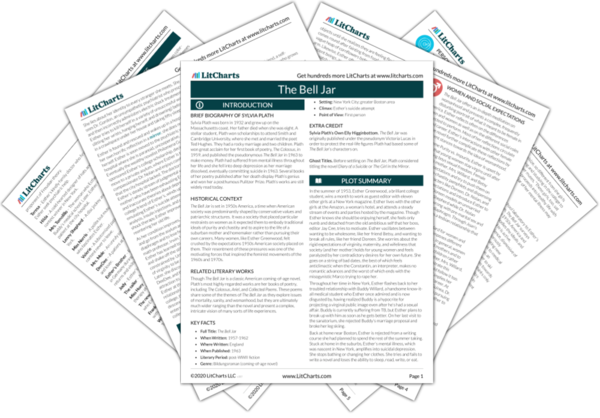AI ToolsNew
Tools to make learning and teaching easier
|
Previous
Symbols
|
The Bell Jar Symbol Analysis |
Next
Mirrors
|
…wherever I sat—on the deck of a ship or a street café in Paris or Bangkok—I would be sitting under the same glass bell jar, stewing in my own sour air.

Unlock explanations and citation info for this and every other The Bell Jar quote.
Plus so much more...
Get LitCharts A+